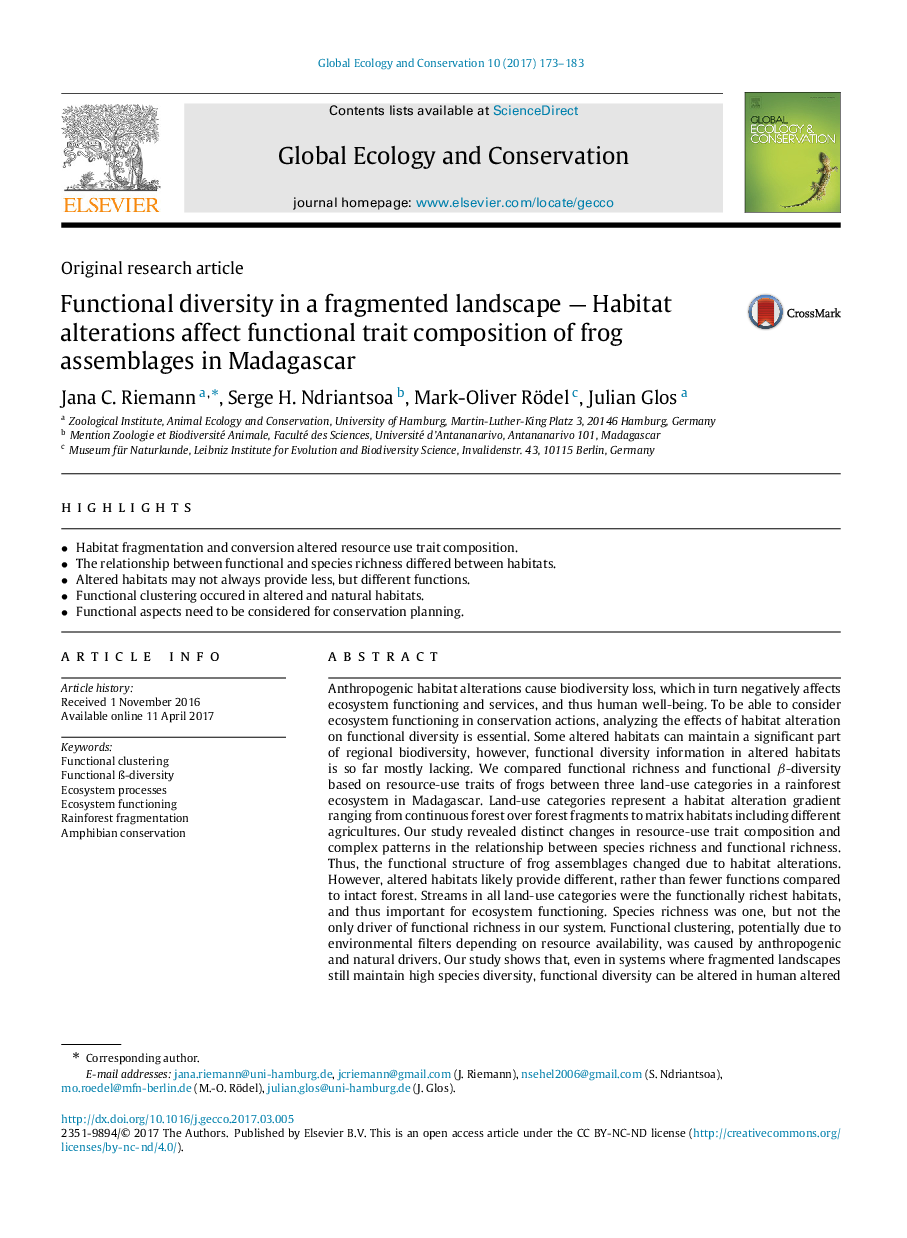| Article ID | Journal | Published Year | Pages | File Type |
|---|---|---|---|---|
| 5742384 | Global Ecology and Conservation | 2017 | 11 Pages |
â¢Habitat fragmentation and conversion altered resource use trait composition.â¢The relationship between functional and species richness differed between habitats.â¢Altered habitats may not always provide less, but different functions.â¢Functional clustering occured in altered and natural habitats.â¢Functional aspects need to be considered for conservation planning.
Anthropogenic habitat alterations cause biodiversity loss, which in turn negatively affects ecosystem functioning and services, and thus human well-being. To be able to consider ecosystem functioning in conservation actions, analyzing the effects of habitat alteration on functional diversity is essential. Some altered habitats can maintain a significant part of regional biodiversity, however, functional diversity information in altered habitats is so far mostly lacking. We compared functional richness and functional β-diversity based on resource-use traits of frogs between three land-use categories in a rainforest ecosystem in Madagascar. Land-use categories represent a habitat alteration gradient ranging from continuous forest over forest fragments to matrix habitats including different agricultures. Our study revealed distinct changes in resource-use trait composition and complex patterns in the relationship between species richness and functional richness. Thus, the functional structure of frog assemblages changed due to habitat alterations. However, altered habitats likely provide different, rather than fewer functions compared to intact forest. Streams in all land-use categories were the functionally richest habitats, and thus important for ecosystem functioning. Species richness was one, but not the only driver of functional richness in our system. Functional clustering, potentially due to environmental filters depending on resource availability, was caused by anthropogenic and natural drivers. Our study shows that, even in systems where fragmented landscapes still maintain high species diversity, functional diversity can be altered in human altered habitats, which may affect ecosystem processes like productivity, nutrient cycling, and energy flows.
